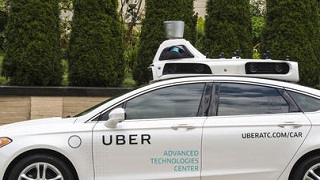More Insights from 2GreenEnergy Colleague Fritz Maffry: Business Success in Autonomous, Why Combined Efforts Make Sense

Time is perhaps more important in this contest for autonomous primacy than other dimensions of performance. Together they can roll out much higher impact programs, with more capital and muscle and a unified effort to get to the goal line first. Other markets are already encouraging such combined efforts, such as Japan and Germany.
If you haven’t noticed, Nissan/Renault/Mitsubishi is a team; now it seems Mazda/Toyota/Subaru is also something of a team. Honda partnered with Softbank, all of Japanese industry cooperating on artificial intelligence.
The German industry is cooperating on autonomous tech, to such a degree that they are buying companies together, such as Nokia mapping capabilities, but there is much more.
So of the magic six, we would like to see some muscular rationalization, with Google, Apple, Facebook, Amazon,Tesla, and Microsoft all partnering up or consolidating by half. This would be the kind of research and development muscle to get to amazing solutions. Those combined research efforts, plus taking out competitive negatives, would seem to make it worthwhile.
As always there are egos there, but egos like to win, and great games often require great alliances.
Just as a straw exercise, imagine Google/Facebook as a team, Apple/Uber/Tesla as a team, Amazon/Microsoft as a team, Tesla/Uber combined. Now those look like alignments that have great management, large cash positions, and some natural competitive forces aligned for better profits. Anyhow, the current arrangement is not likely to remain the same; two or three winners is more likely than six or seven winners in this challenge over a hotly contested giant market (Goldman says market worth seven trillion).
Also, if actual ownership became consolidated, in some cases we would be looking at the first trillion dollar market cap companies; that would be heady indeed. Moreover, these arrangements don’t seem to be jeopardized by anti-trust.

Which companies are taking up the challenge of autonomous motorcycles?